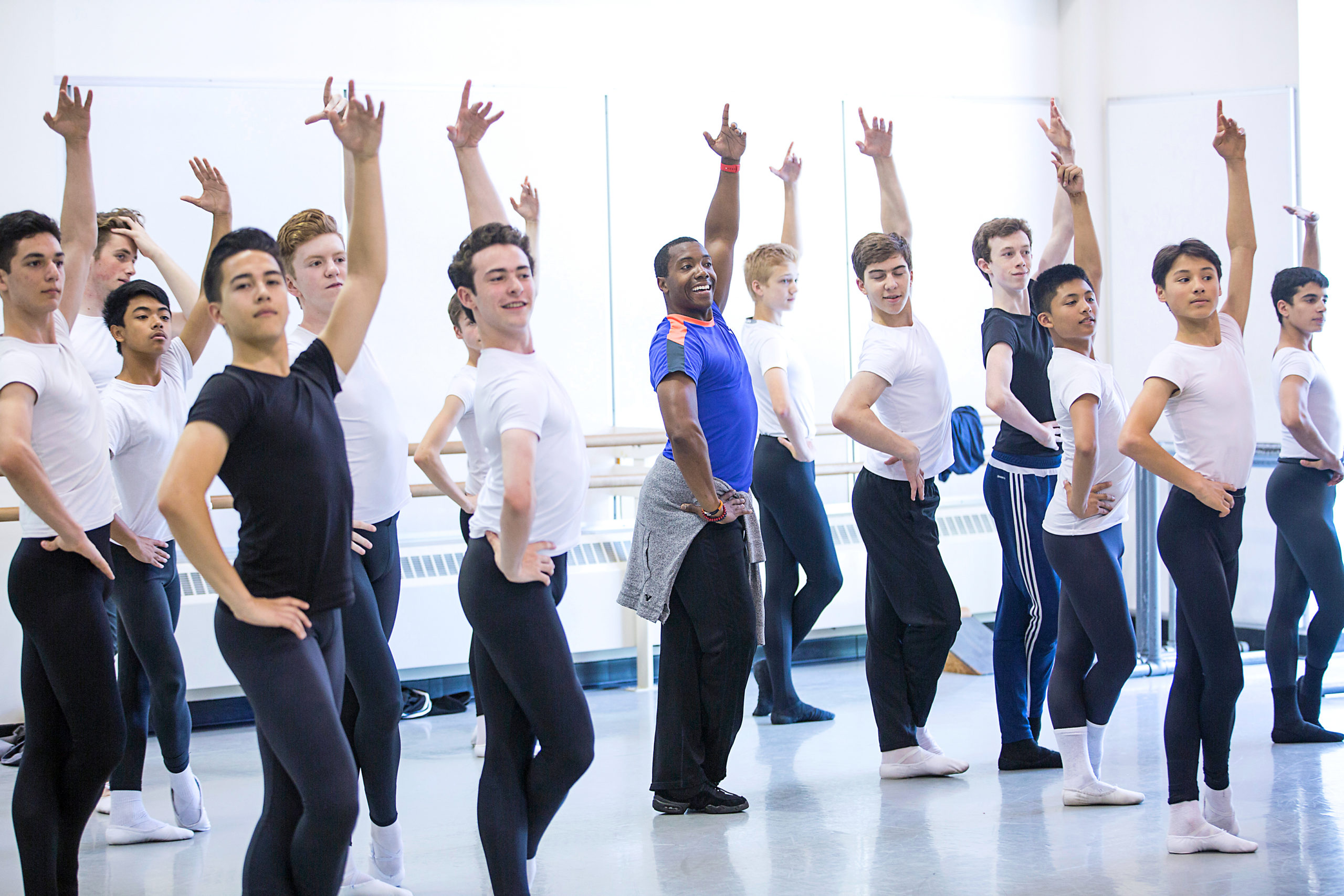Struggling With Stage Fright? Use These 3 Tips to Conquer Your Fears
You’re standing backstage, preparing to perform the solo you’ve spent months perfecting—when, suddenly, your mind blanks. You can’t seem to conjure a single step, and you feel a sense of doom overtaking your mind and body. That sensation, says Josh Spell, LICSW, consulting therapist with Pacific Northwest Ballet School, is stage fright, also known as performance anxiety.
Stage fright is a “state of overwhelm in our body,” Spell says. “Our sympathetic nervous system is in a place of chaos.” He likens the experience to when the processor of a computer has “reached the point of capacity with what it can store. It gets really hot, and it slows down,” he says. In the midst of that feeling of panic, it’s easy to forget that you have agency in how you respond. Here are a few techniques to use—before and during an experience of stage fright—to help minimize the symptoms and get back to dancing.
Use Your Breath
A healthy level of anxiety around performing can be energizing. “It tells you that you care about what’s about to happen and that you’re really invested in the performance,” Spell says. But when you’re experiencing so much pre-performance doubt that your brain shuts off, he recommends doing deep breathing: taking a slow inhale followed by an even slower exhale, repeatedly.
“I imagine a lot of performers haven’t checked in with their breathing because they are so consumed with whatever is about to happen,” he says, “and that takes us out of our bodies.” Since it is difficult to communicate, with ourselves or others, when we’re anxious and guarded (think fight-or-flight response), taking intentional breaths can help calm your mind and body, and ready you for the next steps.
Acknowledge Your Feelings
Once you’ve started to regulate your breathing, consider opening a dialogue with yourself. “That will help you come back into your own experience. We can use emotions as a sort of communication device,” says Spell. Anchoring yourself in the present moment, rather than allowing your thoughts and emotions to determine or judge your experience, will keep stage fright from taking over.
Performance anxiety manifests somatically, not just emotionally, so take a moment to ground yourself in what is happening to your body. “Maybe you notice you have sweaty palms, maybe you have the butterfly sensation, or maybe you feel like there is a herd of cattle on your chest and you can’t breathe,” he says. Naming how your body is reacting brings you back into a dialogue with yourself. This way, Spell says, you’re not just at the mercy of your anxieties. You can advocate for yourself in the moment.
Engage Your Senses
Tapping into your senses—sight, sound, smell, taste, touch—can help you become more connected to your emotional and physical state. Spell recommends squeezing a stress ball, doing intense physical movements like jumping jacks or running in place, or resetting your system with a strong physical sensation, such as putting ice against your skin. You can even use frozen fruit: Simply holding a frozen orange in your hand, or placing it against your temples, can center you in the here and now, Spell says. “You’re not actually present when you’re in this mode of high anxiety. Sometimes, you’re not able to even see what’s happening around you. What you’re really trying to do is come back to the present.”




